THE growing affluence of the mainland Chinese and their love of real estate have been well-documented. High-net-worth mainland Chinese have been on a house-buying spree around the world, sometimes shocking the locals by snapping up luxury real estate with cold hard cash.
The same scenario began to unfold here last year as more Chinese investors started to take notice of Malaysia following the government's announcement that it would undertake a range of initiatives aimed at driving the long-term development of the local property market. This includes improving infrastructure, providing incentives for multi-national enterprises that open branches here, and promoting property purchases and immigration investment schemes to recruit overseas investors.
China-based developer Country Garden Holdings Co Ltd has been making waves in Malaysia, having previously acquired substantial parcels of land in Semenyih and Rawang, Selangor, for township development with joint venture partner Malaysia Land Properties Sdn Bhd (Mayland). Country Garden purchased 55 acres of land in Danga Bay in Iskandar Malaysia, Johor, for RM900 million in late 2012.
Meanwhile, local property players such as Sunway Integrated Properties Sdn Bhd, S P Setia Bhd, IJM Corp Bhd and LBS Bina Group Bhd, have made their presence felt in China. Malaysian retail brands such as Old Town Bhd and Secret Recipe Sdn Bhd have also ventured into the republic.
Hope CBD Realty Consultancy Sdn Bhd was recently formed by China-based Hopefluent Group Holdings Ltd and local real estate agency CBD Properties Sdn Bhd to combine their expertise and strengths to explore new opportunities and tap into the increased flow of investment and real estate activities between China and Malaysia.
"We realised that investors from mainland China have a keen interest in overseas properties and it would be a good chance to introduce Chinese investors to the Malaysia market," says Hopefluent chairman Fu Wai Chung in a recent email interview.
Going forward, Hope CBD aims to build a platform on which it can grow locally and internationally. Already there are plans to expand regionally to countries such as Singapore, Taiwan and Indonesia in the next two years. It also hopes to work with the Malaysian Institute of Estate Agents and the Board of Valuers to collaborate with other companies overseas.
"The property market in Malaysia should be able to attract more quality developers and buyers from China. I strongly believe this collaboration could take the property markets in both countries to another level," CBD Properties managing director Adrian Wang tells City & Country in an exclusive interview.
Wang also hopes to bring more Malaysian retail brands into China via his subsidiary CBD Retail Consultancy Sdn Bhd.
Trends and demographics
According to Wang, his agency has been dealing with about 30 to 40 MM2H applications per month from mainland China over the past year. He expects this figure to grow with the collaboration.
"There is a purchase quota in the major cities of China. If our locals want to invest, foreign markets would be the best choice, explains Fu.
According to CBD Properties executive director Daphne Chan, there are two types of Chinese customers. "The first group are pure investors while the second are buying retirement homes. The latter are looking for residential units near hospitals and education centres," she says.
The mainland Chinese generally prefer to buy homes in central business districts in the Klang Valley, Penang and Johor. They are also known to buy development and plantation land.
"We have noticed that China investors are buying Country Garden projects in Danga Bay. They prefer units with a sea view. Therefore, we are confident projects in Penang, Johor Baru, Melaka and Port Dickson will fare well," says Wang.
He adds that Port Dickson has the advantage when it comes to retirement programmes due to its proximity to Kuala Lumpur. Prices there are relatively lower than in other places.
Meanwhile, demand is anticipated to pick up near Xiamen University in Salak Tinggi, Sepang, Selangor, says Chan. Malaysia has been chosen as the venue for the first overseas branch campus of Xiamen University — one of the top 20 universities in China. The campus is expected to be operational by September 2015.
Wang also anticipates more Chinese companies setting up their regional offices in Malaysia in the near future. Last year, Hwawei set up its Asia-Pacific headquarters at The Icon in Jalan Tun Razak, Kuala Lumpur. Malaysians have the advantage of being multilingual. Our rental rates and currency are also lower than Singapore, he explains.
While the transactions from the Chinese are a mix of business and individual buyers, the bulk of transactions from Malaysians are mainly centred on commercial properties for business in major cities such as Zhuhai, Guangxi, Tianjin, Shanghai and Shenzen. "Most of these buyers are Chinese Malaysians," says Wang, adding that property prices in China have been known to double within three to four years.
According to Fu, there are laws and restrictions for foreign purchases in China, but they differ from city to city. For example, individuals in Guangzhou are not allowed to purchase commercial titled properties. However, individuals in Shanghai are allowed to do so.
Challenges faced
While there is no doubt that these mainland Chinese investors are cash-rich and are willing to spend beyond their budget if they spot a good pick, they are also a savvy and rather demanding bunch, says Wang.
One of the biggest challenges faced is the difference in buying behaviour. "The mainland Chinese are usually results-oriented and work in a fast-paced environment, so they always expect results within a short time frame," he explains.
Another challenge is that Malaysian transaction data would always be obsolete by the time of publication. This differs from countries such as China and Singapore, where all the transactions and property data can be obtained within a month.
"Generally, these investors are not interested to rent. There are many who have already come prepared. Some are ready to pay for everything in cash," says Chan. If the buyers are looking to buy for investment, they always expect to have at least a 5% return annually.
The company has also encountered the challenge of relatively low and unattractive professional fees to market Malaysian properties in China. "In countries like Australia, the Philippines, Thailand, the US and UK, they pay 4% to 7% of the transaction value to overseas property agents, but most of the Malaysian property owners pay 2% to 3% of the net transaction price as a professional fee to marketing agents," says Wang.
It is also difficult to convince developers from various countries to step outside their comfort zones to venture into and develop in China.
Market outlook
According to Wang, after the recent 13th general election, investor confidence in Malaysia increased, resulting in a more stable economic climate. The government is expected to continue implementing the Economic Transformation Programme projects and various initiatives to strengthen the economy. "Local property prices will still be strong. It might even continue to rise in the future," he says.
In early March, the Chinese government set its economic and social development targets for the year. This includes pursuing an annual GDP growth of about 7.5% and an annual consumer price index increase of 3.5%, as well as proposing the urbanisation of villages as a major economic growth driver.
"We are optimistic about the future development of China's property market," says Fu, adding that this is backed by strong demand from first-time buyers and the improving living standards, as well as the sales strategy of major developers to "sell more properties at a lower price".
This story first appeared in The Edge weekly edition of June 24-30, 2013.
TOP PICKS BY EDGEPROP
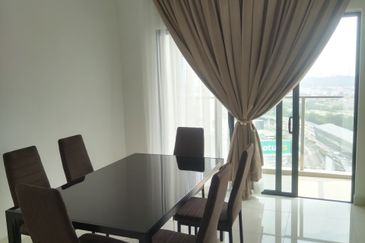
Trio by Setia
Bandar Botanic/Bandar Bukit Tinggi, Selangor

Asteria Apartment @ Bandar ParkLand
Klang, Selangor
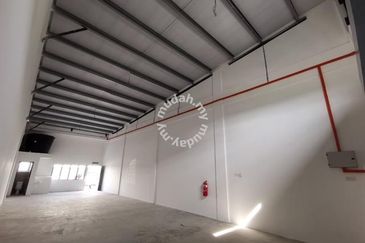
Sungai Kapar Indah Industrial Zone
Kapar, Selangor


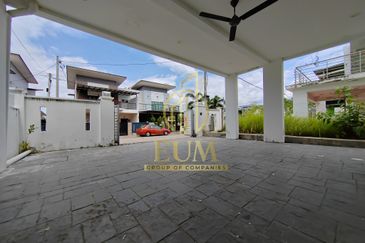

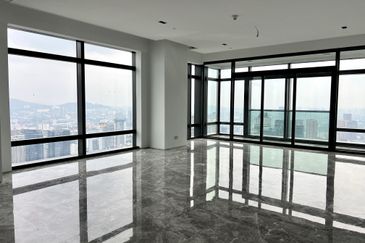
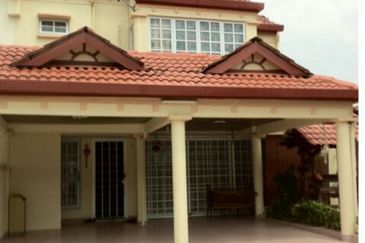
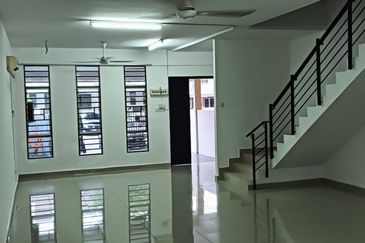


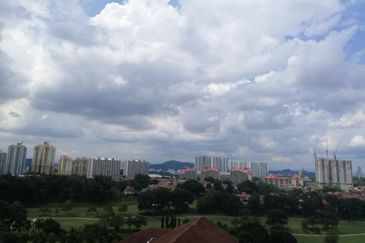

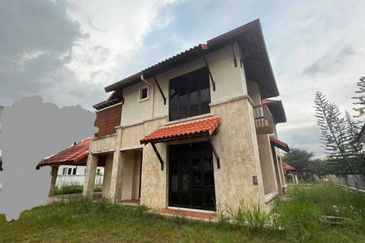
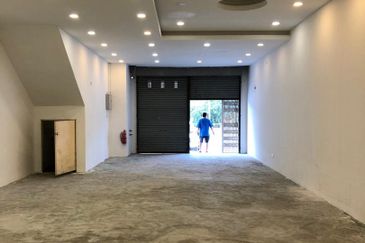

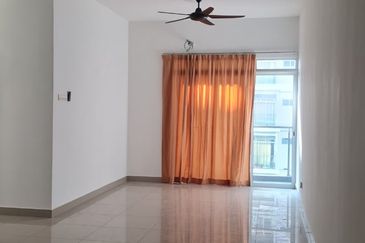
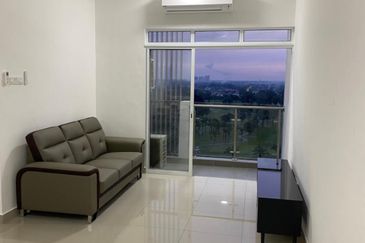

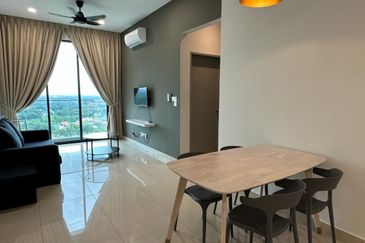
hero.jpg?GPem8xdIFjEDnmfAHjnS.4wbzvW8BrWw)



